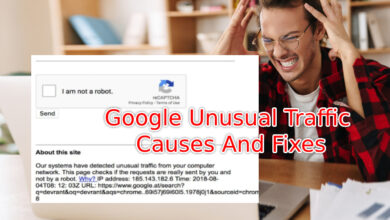Reliability Centered Maintenance: 7 Questions That Need To Be Asked

The average maintenance worker costs a company over $43k during a year of operation.
By streamlining and improving maintenance procedures and processes businesses can save considerable money. The more successful a company’s maintenance strategy the more profitable and efficient they will be. Reliability-centered maintenance is the most efficient maintenance possible.
What is RCM and what questions should you ask before implementing it?
Reliability-centered maintenance, RCM, is a continuing, systematic process of analyzing critical systems. This analysis pairs with the most cost-effective way to maximize the reliability of that system.
Here are the seven questions that an RCM strategy must answer:
1. What Is the Function and Performance of Each System?
If you look at a critical system, you first need to know what it does, and why it is critical. Once you know, you can move on to the desired performance of that system. How well it performs the function it is intended to.
2. How Can Failures Occur?
With any system, there are certain possibilities when it comes to mechanical failure. Can a piece break, if so, how and why? Can a subsystem cause the entire system to fail, and if so, what does that look like? Analysis and understanding are critical.
3. What Can Cause the System to Fail?
Systems and equipment fail and break down all the time. What causes these failures, and what is the specific weakness in the system in question? Knowing this is critical to performing efficient maintenance.
4. What Happens When the System Fails?
Understanding the impact of the system can help prioritize the maintenance of that system. If a system isn’t critical, then not as much time or money needs to be spent to keep it functioning. If a system is critical, you should be prepared for it to need repair.
5. How Often Is Failure Expected?
Is there a precedent for how often failure occurs in the system in question? If not, how easy is it to damage the system, and how often can that be expected. This question is imperative for preventative maintenance.
6. Can We Predict or Prevent Such a Failure?
Part of the RCM analysis must go into whether or not it is possible to prevent a failure. If you can predict the failure, you can at least be prepared for it. RCM services focus on this aspect as it is always better to not have any failures if possible.
7. What Else Can We Do?
If you can’t figure out how to prevent or predict a failure, what can you do? Part of that is the cornerstone of reliability-centered maintenance. You can always go back to what components seem weaker or more fragile and prepare from there.
The Value of Reliability-Centered Maintenance
Reliability-centered maintenance is the most efficient way of understanding your maintenance needs. Maintenance should be as focused and precise as any other aspect of a business. This will help save money and lead to less downtime.
If this article was helpful or interesting, please take a moment and check out our website.





